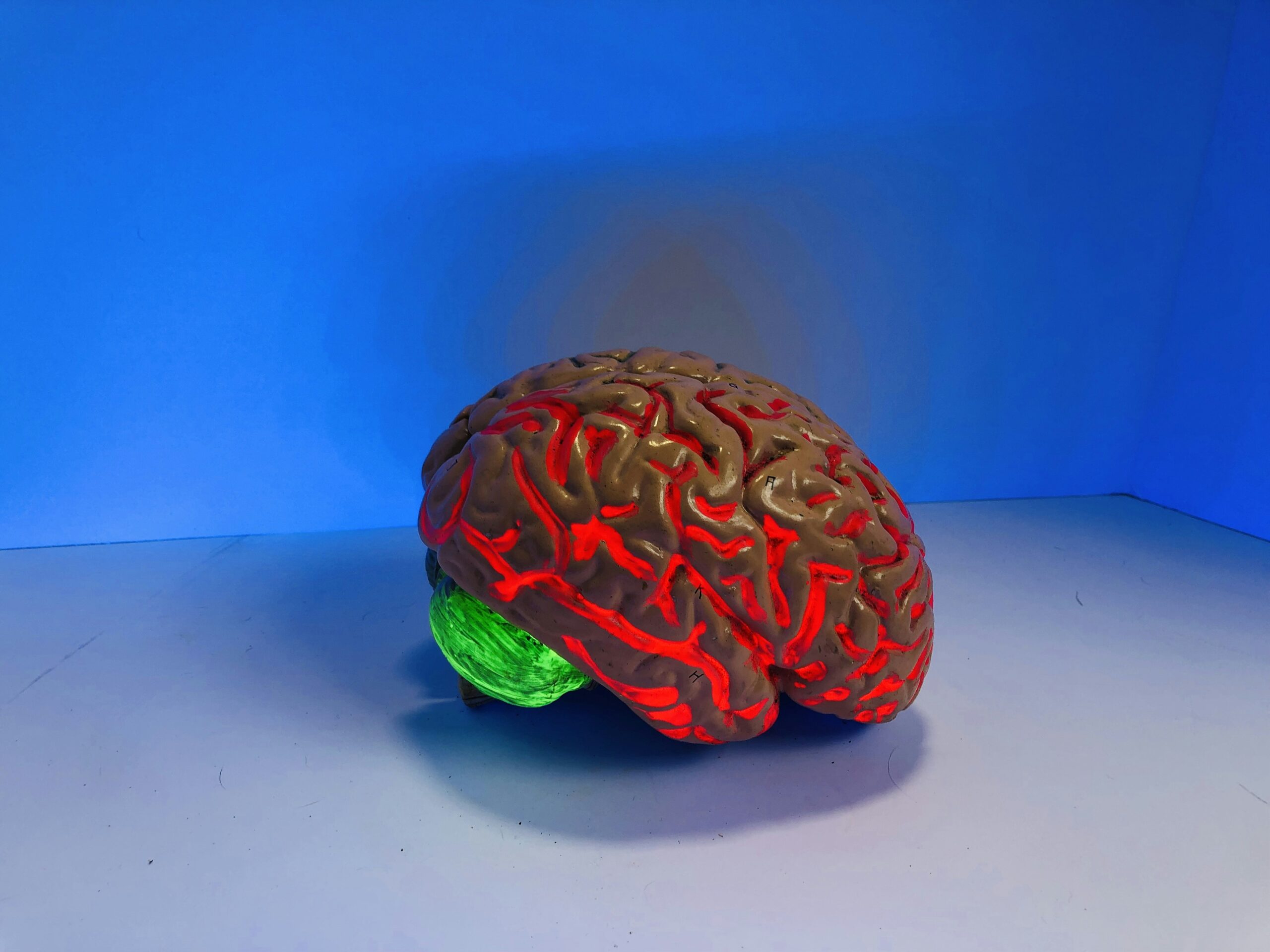Understanding Memory Issues in Aging” delves deeply into the complexities of memory problems that often emerge as we grow older, shedding light on the distinction between natural age-related memory changes and more serious conditions. You will discover practical insights and detailed explanations that will help you better understand why these issues occur and what you can do about them. This engaging read aims to equip you with the knowledge to recognize when memory lapses are simply part of the aging process and when they might signal something more concerning. Have you ever found yourself struggling to remember someone's name after an introduction, or misplacing your keys for the umpteenth time? If so, you're not alone. For many of us, memory issues start to become more apparent as we age, leading to questions and sometimes even concerns about the state of our cognitive health.
What is Normal Aging?
Normal aging brings about a variety of changes to the body, including the brain. As you grow older, your body undergoes natural wear and tear. These changes can affect various functions, including memory. It's essential to differentiate normal aging from more severe conditions, as this understanding can help you better navigate this phase of life.
Cognitive Changes
It's perfectly normal to experience some cognitive changes as you age. Usually, these changes are subtle and don’t interfere significantly with daily life. You might find yourself needing a little extra time to learn new skills or recall names and facts. These changes don’t typically inhibit your ability to function independently.
Memory Types
There are different types of memory that may be affected by aging:
- Short-term memory: This involves retaining information for a short period, like remembering a phone number long enough to dial it.
- Long-term memory: This is the ability to remember events, facts, and knowledge over a long period.
- Working memory: This type influences your ability to multitask effectively.
By understanding these memory types, you can gain better insight into what areas may be impacted as you age.
Causes Of Memory Issues in Aging
Memory decline in aging can stem from a variety of factors, some of which are natural and others that may indicate a need for medical attention. Here we’ll dig into these causes to give you a comprehensive understanding.
Biological Changes
Aging brings changes to brain structure and function. For example, the hippocampus — a brain region crucial for forming new memories — often shows some decline in function. Other regions may also experience reduced blood flow, which can contribute to memory lapses.
Lifestyle Factors
Your lifestyle can significantly impact your cognitive abilities. Factors such as poor diet, lack of physical activity, inadequate sleep, and chronic stress can all contribute to memory issues over time. A healthy lifestyle can help mitigate some of these effects.
Medical Conditions
Certain medical conditions can exacerbate memory loss. These include:
- Hypertension: High blood pressure can limit the amount of oxygen-rich blood reaching the brain.
- Diabetes: Fluctuating blood sugar levels can impair memory and cognitive function.
- Thyroid disorders: An underactive or overactive thyroid can lead to memory problems.
- Mental health issues: Chronic depression and anxiety can also contribute to memory decline.
Being aware of these conditions can help you take preventive steps or seek medical advice when necessary.
Medications
Some medications can lead to memory issues as a side effect. It's crucial to be aware of this if you are taking medications for other health conditions.
- Anticholinergics: These are used to treat conditions like allergies and urinary incontinence but can impair memory.
- Benzodiazepines: Often prescribed for anxiety, these can affect memory and cognitive function.
If you suspect that your medication is impacting your memory, consult your healthcare provider for alternatives.
How to Differentiate Between Normal Aging and Serious Memory Problems
Not all memory loss is created equal. It's essential to distinguish between what's considered a normal part of aging and more severe conditions that may require medical intervention.
Normal Age-Related Memory Changes
- Occasionally forgetting names or appointments but remembering them later.
- Sometimes struggling to find the right word.
- Misplacing items from time to time, such as glasses or remote controls.
- Experiencing mood changes in unfamiliar environments.
Warning Signs of Serious Memory Problems
- Repeatedly asking the same questions.
- Frequently forgetting common words.
- Getting lost in familiar places.
- Neglecting personal care and hygiene.
Recognizing these warning signs can help you determine when to seek professional advice.
Strategies to Maintain and Improve Memory
While some memory decline is inevitable, there are several strategies you can adopt to maintain and even improve your cognitive functions.
Physical Exercise
Engaging in regular physical activity is one of the most effective ways to enhance your cognitive health. Exercise boosts blood flow to the brain, encouraging the growth of new brain cells.
Mental Stimulation
Keeping your brain engaged with activities like reading, puzzles, or learning new skills can be beneficial. These activities stimulate your brain, helping to create new neural connections.
Diet and Nutrition
A balanced diet rich in antioxidants, healthy fats, and other essential nutrients can significantly impact your brain health. Foods such as berries, fish, and nuts are known to be particularly beneficial.
Social Engagement
Maintaining strong social connections can improve your cognitive health. Engaging in social activities can help keep your brain active and alert.
Quality Sleep
Quality sleep is crucial for memory consolidation. Aim for seven to nine hours of sleep per night to keep your memory sharp.
Medical Interventions
In some cases, lifestyle changes alone may not be sufficient. Medical interventions may be necessary to manage severe memory problems.
Cognitive Behavioral Therapy
Cognitive Behavioral Therapy (CBT) can be an effective treatment for individuals experiencing memory issues due to depression or anxiety.
Medications
In some circumstances, medications may be prescribed to help manage memory issues. These can include drugs specifically designed to treat conditions like Alzheimer's.
Regular Check-Ups
Regular medical check-ups can help diagnose any underlying conditions that may be contributing to memory problems. Early diagnosis can offer more treatment options and better outcomes.
Brain Health Supplements
There are various supplements on the market claiming to improve brain health. While some may be effective, it’s always advisable to consult with a healthcare provider before adding any new supplements to your regimen.
Myths and Misconceptions
There are numerous myths and misconceptions surrounding memory and aging. Clearing up these misunderstandings can provide you with a more accurate perspective.
Myth 1: Memory Loss is Inevitable
While some memory decline is a normal part of aging, severe memory loss is not inevitable. Many factors can influence cognitive health.
Myth 2: It’s Too Late to Improve Memory
You can take steps to improve your memory at any age. The brain is capable of forming new connections throughout life.
Myth 3: Memory Loss Equals Dementia
Not all memory loss indicates dementia. Many factors can contribute to memory problems, and it’s crucial to understand the differences.

FAQs About Memory Issues in Aging
Here are some common questions people have about memory issues as they age:
What Age Does Memory Decline Start?
Memory changes can start as early as your 30s or 40s, but they often become more noticeable after the age of 60.
Is Forgetting Names a Sign of Dementia?
Occasionally forgetting names is usually a normal part of aging. However, consistently forgetting common names could be a sign of a more severe problem.
Can Exercise Really Improve Memory?
Yes, numerous studies have shown that regular physical exercise can improve memory and cognitive function.
Do Brain Games Help?
Brain games can be beneficial, but it’s essential to engage in a variety of stimulating activities to maintain overall cognitive health.
Should I Be Worried About My Memory?
If memory issues are affecting your daily life, it’s important to consult a healthcare provider.
Conclusion
Understanding memory issues in aging is crucial for adopting effective strategies to manage them. While some memory decline is a natural part of aging, various lifestyle changes and medical interventions can help mitigate these effects. By staying informed and proactive, you can maintain your cognitive health and enjoy a fulfilling life as you age.
Remember, you're not alone in this journey, and there are numerous resources and strategies available to help you navigate the challenges associated with memory issues in aging. Always consult healthcare professionals for diagnosis and tailored advice, but know that proactive steps can make a significant difference.
By embracing healthy habits and staying engaged, you can improve your quality of life and maintain your cognitive abilities for years to come.




